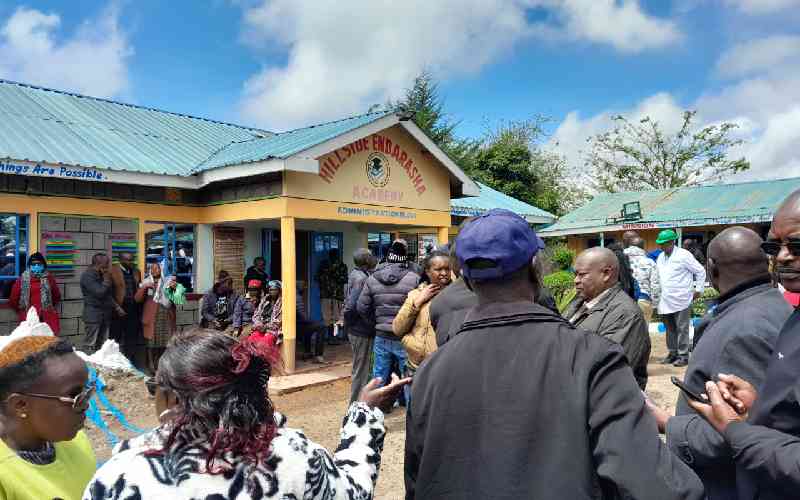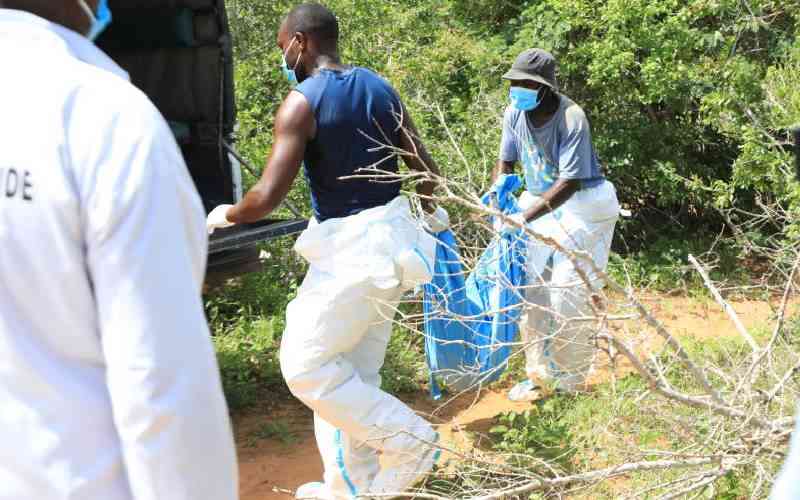By Pascal Mwandabo
The sudden arrival of a GK vehicle in the village makes people take to their heels in all directions.
But those inebriated struggle to come to terms with the unfolding scenario.
Their heavy bloodshot eyes turn to the owners of the illicit brew dens for help. But the owners are too astonished to notice.
The community policing team and police officers rummage through the shanty structures as hundreds of litres of bootleg brews are confiscated.
This is a typical scenario in Taita–Taveta County which has gained notoriety as a hub of illicit brews in Coast region.
The problem of illicit brews is more pronounced on the outskirts of Voi town and other far flung villages in the county where security enforcement has slackened.
Degree of sanity
The exercise is part of a wider programme the Government is engaged in to fight the menace, and it has recorded notable success.
While the Mututho Law — formally known as the Alcoholic Drinks Control Act (2010) — has brought a degree of sanity and order in regulating the sell and consumption of alcoholic drinks in licensed bars in the towns, the war has now shifted to the villages where drinkers, keen to beat the law are retreating in droves.
Investigations by The Standard have established that there has been a sharp increase in brewing and consumption of illicit brews in Voi and other outlying areas in Taita-Taveta County since the introduction of Mututho Law.
According to Voi District Commissioner Mr Raphael Lemaletian, this could be partly because the price of beer and other bottled alcoholic drinks has risen following the stringent licensing procedures under the new law.
“Alcohol drinkers who cannot afford drinks sold in bars get a cheaper substitute to quench their craving. Their option is the illicit brew,” says Lemaletian.
Impromptu raids
The Government’s steady effort to curb illicit brews has seen police officers carry out impromptu raids on the brew dens and confiscating thousands of litres of the drinks.
Usually, they arrest the brewers and their customers who are then taken to the Voi law courts where they are charged and fined up to Sh30,000.
The raids have been dramatic. At Sofia village in Voi, an illicit brews dealer stripped naked to repulse security officers who attempted to arrest her after she was found habouring more than 350 litres of the notorious local brew, m’bangara.
Stay informed. Subscribe to our newsletter
The officers patiently waited for her to put on her clothes before arresting her.
In another incident, dirty women underwear was found buried inside a jerrican containing m’bangara at Mwakingali village in Voi.
It has been alleged that the brew sellers engage in this bizarre practice believing that it will attract more customers and thereby boost their sales.
Voi district officer Mr George Matundura revealed that they had impounded more than 3,000 litres of the notorious brew in the recent past.
“We are waging a sustained battle against these brews and we shall not rest till the menace is firmly under control,” said Matundura.
Risk their lives
The administrator says brews such as m’bangara, chang’aa and miti ni dawa were being prepared and sold under unhygienic conditions, without conforming to the public health standards.
“The Government cannot sit back and watch as people risk their lives by consuming unlicensed drinks,” the officer said.
Despite the fact that m’bangara and mnazi are traditional drinks in line with local culture, they can only be sold according to the laws laid down by the Government — any alcoholic drink must be tested and certified by the Government Chemist and the Kenya Bureau of Standards, says Mr Matundura.
Eileen Mwaita, a Voi educationist and counsellor says the county has numerous alcoholics who should be rehabilitated.
Wrecked homes
“Alcohol has wrecked homes,” she says, “as more and more men are abandoning their responsibilities leaving women with the burden of raising children and running homes.”
Illicit brewers say they are not going to just stop their trade. One is even gives conditions that must be met before she stops brewing.
“Unless I am enlisted as a relief food beneficiary, I will not stop,” she swore.
An elder wants the Government to draw a line between illicit and traditional brews, saying mnazi, a traditional brew, was a healthy drink tapped from the coconut tree.
He is not happy that the drink is listed among illicit brews.
On mnazi, Mr Lemaletian clarifies: “The mnazi sellers get one licence from the Coconut Development Authority, but they also must obtain a liquor licence from the Government. Failure to obtain the latter licence will mean that the drink will still be impounded and the sellers prosecuted for flouting regulations.”
 The Standard Group Plc is a
multi-media organization with investments in media platforms spanning newspaper
print operations, television, radio broadcasting, digital and online services. The
Standard Group is recognized as a leading multi-media house in Kenya with a key
influence in matters of national and international interest.
The Standard Group Plc is a
multi-media organization with investments in media platforms spanning newspaper
print operations, television, radio broadcasting, digital and online services. The
Standard Group is recognized as a leading multi-media house in Kenya with a key
influence in matters of national and international interest.
 The Standard Group Plc is a
multi-media organization with investments in media platforms spanning newspaper
print operations, television, radio broadcasting, digital and online services. The
Standard Group is recognized as a leading multi-media house in Kenya with a key
influence in matters of national and international interest.
The Standard Group Plc is a
multi-media organization with investments in media platforms spanning newspaper
print operations, television, radio broadcasting, digital and online services. The
Standard Group is recognized as a leading multi-media house in Kenya with a key
influence in matters of national and international interest.









